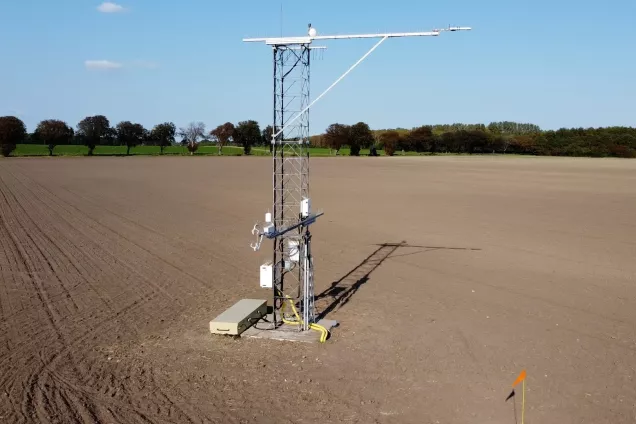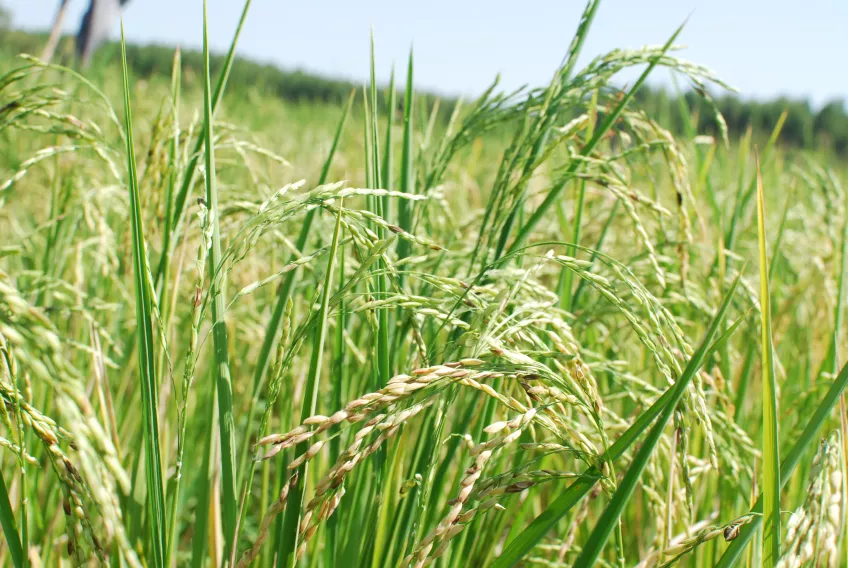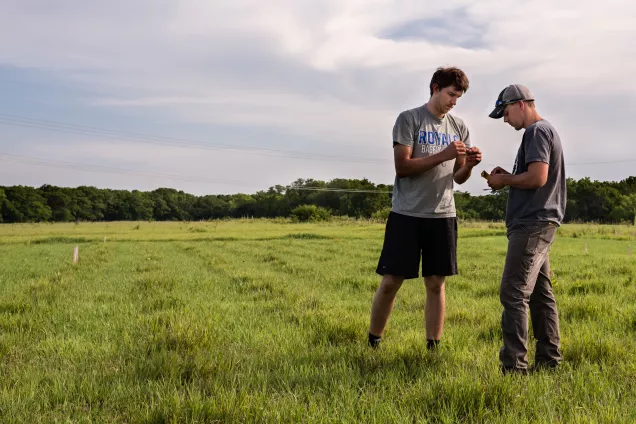Perennial agriculture
Key research area at LUCSUS
There is an urgent need for agriculture to drastically reduce its negative environmental impacts, while at the same time responding to increasing demand and adapting to a changing climate. For this to be possible, radical change in how we grow our major staple crops is essential. At LUCSUS researchers are studying both ecological, social and economic aspects of what a shift from annual monocultures to perennial polycultures could imply, and its potential to revolutionise agriculture and revitalise rural society.
Modern agriculture is associated with numerous environmental predicaments, such as land degradation, water pollution, and greenhouse gas emission. Socio-economically, it is characterized by a treadmill of technological change, increased mechanization, and economic consolidation, while depressing economic returns to farmers.
A root cause is the dominance of annual plants cultivated in monocultures. Annual crops require the yearly clearing of vegetation resulting in soil erosion and other forms of ecosystem degradation. By contrast, perennial polycultures informed by natural ecosystems, promise more sustainable agroecosystems with the potential to also revitalize the economic foundation of farming and hence rural societies.
Rethinking and reshaping agriculture is imperative for solving the current problems of agriculture, such as soil erosion, nutrient depletion and leaching, and emission of greenhouse gases, as well as the dependency on costly and labor intensive external inputs.
When realizing that our current cultivars and cropping systems will face severe and unprecedented challenges in the decades to come due to climate change, it is equally imperative to make agriculture more climate resilient.
Our research and collaborations
LUCSUS researchers has worked in close collaboration with The Land Institute (US) and the Swedish University of Agricultural Sciences to advance the research on perennial agriculture since 2018.
In 2019 LUCSUS researcher co-hosted an international conference on perennial grain agriculture in collaboration with The Land Institute, US. Some 90 participants from all continents participated, and the meeting is considered a turning point of the global initiative for a perennial revolution of agriculture. In December 2022, Science announced the 10 scientific breakthroughs of the year, and one of them was the development of perennial rice as reported in an article in Nature Sustainability – the conference was instrumental in bringing the authors together.
In 2023 professor Lennart Olsson was warded the prestigious ERC Advanced Grant for his visionary research on perennials. Read more about the ERC grant here
What is perennial agriculture? A short explainer.

Unique research infrastructure on perennial crops in Lund
As part of innovative research on perennial crops, a unique research infrastructure has been developed outside Lund. The infrastructure will measure the exchange of greenhouse gases between the atmosphere and agriculture in real time in two parallel cultivation systems: the newly domesticated Kernza (Intermediate wheatgrass) and conventional crop rotation in Skåne (including wheat, sugar beet, barley and rapeseed).

